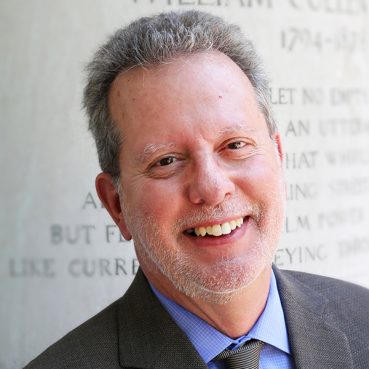(RNS) When I pile into a rental car on Feb. 10 for a 30-day pilgrimage across America, I will have three to-do’s:
1: Get from San Mateo, Calif., to Upstate New York, a distance of perhaps 4,000 miles as a crow wouldn’t fly.
2: Arrive by March 10, in time to pick up my wife at the airport.
3: Stay on two-lane roads wherever possible, and don’t plan my route more than one day in advance.

An open two-lane road.
The rest will come as it comes. I will be working on two books: a Lenten study guide and one on “two-lane theology.” I will be blogging and sending my daily reflections. Mostly, I will be seeing whatever there is to see.
The metaphor for faith in the Gospel of John is “seeing.” Going from blindness to sight, from not knowing to knowing, from darkness to light. I don’t think we start a journey to faith by concluding we are blind or in darkness. Rather, it is light that exposes darkness, and fresh ideas, fresh words, fresh faith that reveal the stale.
It is God who exposes our need for God. It is wholeness that names brokenness. That’s why I am not concerned about planning a route or making sure I check off all the drive-America boxes. I go into it not knowing what I don’t know.
God sees our blindness and darkness. The heart of faith is trusting God to lead us onward, to show us what we don’t see — to love us even when we don’t know our need for that love.
The best writing, in my opinion, starts with a blank page. Not an outline, not an assignment, but a page to fill with whatever comes to mind. That might sound sloppy and self-indulgent. But the blank page allows the creative spark. It allows writing to be discovery.
The best preaching, in my opinion, starts in a similar way. Grapple with the Bible lessons, think through ideas, listen for stories, and then stand paperless before your people, vulnerable and eager to convey meaning, and say what needs to be said. (Oh, and be brief.)
The best advice I give to a congregation is this: Go to the edge of your property and look outward. Let the needs and situations you see outside be your guide for everything you do inside. We can’t get so caught up in agendas, plans, schemes, finances and careers that we fail to see what God is showing us.

Tom Ehrich is a writer, church consultant and Episcopal priest based in New York. He is the president of Morning Walk Media and publisher of Fresh Day online magazine. His website is www.morningwalkmedia.com. Follow Tom on Twitter @tomehrich.
This blank-page approach isn’t just for writers. It’s for parents who should stop channeling their children into predetermined scripts and measures of success. It’s for politicians who should be listening to the nation’s heartbeat, not chasing ideology and money. It’s for all of us who are compulsive planners, determined to control time and people, fearful of downtime, hostile to spontaneity.
Yes, there is risk in a blank page. I could get bored. I could start my day in an unforeseen place and ask, “What in the world am I doing here?” I could come to the end of a day of driving and realize I got mesmerized by the road and didn’t have a single deep thought.
That doesn’t worry me. God will be with me. I only hope to see what God wants me to see.
(Tom Ehrich is a writer, church consultant and Episcopal priest based in New York. He is the president of Morning Walk Media and publisher of Fresh Day online magazine. His website is www.morningwalkmedia.com. Follow Tom on Twitter @tomehrich.)
KRE/MG END EHRICH




